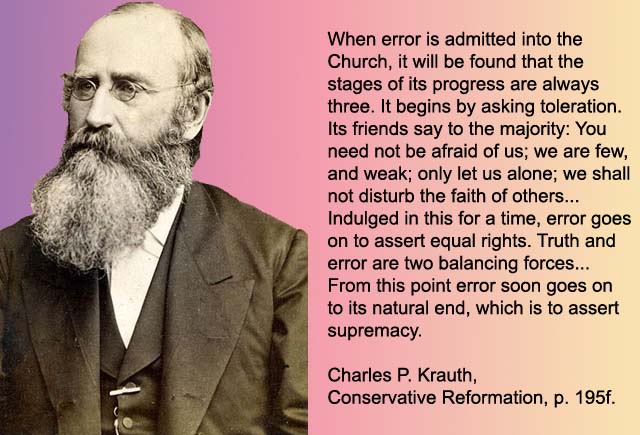 |
| Norma A. Boeckler |
The Bible is not about God, but is God's unique Book of the Holy Spirit, teaching one Truth through various human authors. Thanks to the influence of Karl Barth and his lovely Commie mistress, Charlotte Kirschbaum, many Evangelicals see the Bible as containing God's Word, not as God's Word. Fuller Seminary has disseminated this false view from their own faculty learning under Barth/Kirschbaum.
 |
| Norma A. Boeckler |
The Spirit always works with God's Word and never apart from God's Word. Isaiah 55:8ff makes that clear, as do many other passages in the Old and New Testaments. The beginning of all false doctrine is the Spirit/Word divorce. That separation makes possible the decrees of the Pope in Rome and the popes in Lutherdom. All pagan religion comes from this Enthusiasm, the label Luther gave this basic error.
This divine efficacy and power means that God created the universe in six 24-hour days. Young earth? The only reason for an old earth is God's need to slowly work out the details of evolution to the satisfaction of the Calvinists and compromisers.
The Real Presence is also related to the efficacy and power of the Word. And Sacraments do accomplish - through the Word - what is promised in the Scriptures.
Jesus Himself made it clear that the foundational sin is unbelief, specifically not believing in Him.
 |
| Norma A. Boeckler |
John 16:7 Nevertheless I tell you the truth; It is expedient for you that I go away: for if I go not away, the Comforter will not come unto you; but if I depart, I will send him unto you.
8 And when he is come, he will reprove the world of sin, and of righteousness, and of judgment:
9 Of sin, because they believe not on me;
10 Of righteousness, because I go to my Father, and ye see me no more;
11 Of judgment, because the prince of this world is judged.
Grace can only come to us through the Spirit at work in the Word, so God has appointed Means or Instruments to end all anxiety and doubt about whether we are forgiven. Those who despise the Means of Grace are merely exhibiting their hatred for the Word of God and the grace of God. The UOJists imagine they are God's counselors, so they have God doing and saying things that cannot be found in the Scriptures but readily available among the Universalists, Unitarians, and occultists.
Therefore, the work of the Bride of Christ is not to burn more incense and attend more Romanizing workshops, but to teach faith in Christ the Savior.
Because these basics have been neglected, mocked, and jettisoned, the Lutheran Church is no more. Lutheran pastors and congregations still do their work. But the synodical apparatus is against them at every level, from the Circuit Pastors and District Pastors to the Synod Presidents and learned or unlearned professors.
Notice how the false teachers, corrupt, and incompetent are rewarded, praised, and promoted. This is not man's work, but God's work - to punish people for their indifference to sound doctrine. Their insurance dollars pay for ELCA programs. Their offering dollars evaporate faster than booze at a Fox Valley gathering.
 |
| Norma A. Boeckler |






































